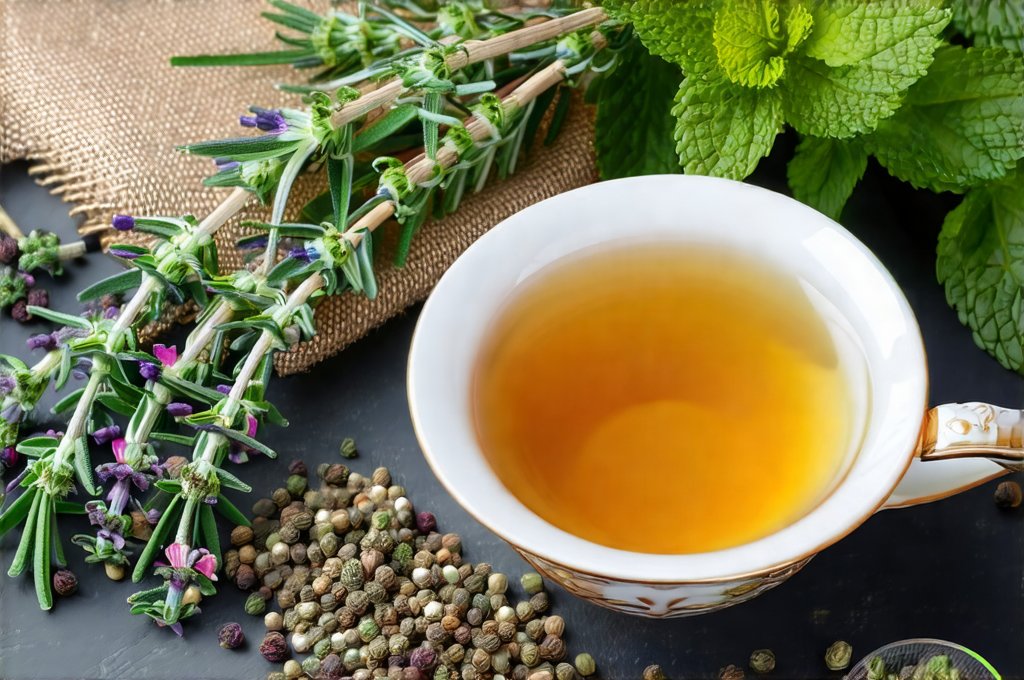Bladder discomfort can significantly impact quality of life, ranging from mild irritation to more disruptive symptoms like urgency and frequency. While modern medicine offers various treatments, many individuals are seeking complementary approaches rooted in traditional herbal remedies. Herbal teas have long been used for their potential soothing properties, offering a gentle way to support bladder health as part of a holistic wellness strategy. It’s crucial to remember that self-treating bladder issues isn’t advisable and consulting with a healthcare professional is paramount; however, understanding the history and potential benefits of certain herbal teas can empower individuals to make informed choices alongside conventional care.
The effectiveness of herbal remedies often lies in their complex chemical compositions and synergistic effects. Rather than targeting symptoms directly, many herbs aim to address underlying imbalances or support the body’s natural healing processes. For bladder health specifically, herbs are frequently chosen for their anti-inflammatory, diuretic (water-moving), antispasmodic (muscle relaxing), or nervine (calming) properties. However, it’s vital to approach herbal teas with caution and awareness. Herbal remedies aren’t a one-size-fits-all solution, and individual responses can vary widely. Factors like dosage, quality of herbs, potential interactions with medications, and underlying health conditions all play a role in determining efficacy and safety.
Understanding the Role of Herbal Teas in Bladder Support
Herbal teas are not replacements for medical treatment but can be considered as supportive adjuncts under the guidance of a healthcare professional. The selection of appropriate herbal teas depends on the specific nature of bladder discomfort experienced. For instance, if urgency and frequency are primary concerns, herbs with diuretic properties might offer relief by promoting fluid elimination. Conversely, if spasms or pain are dominant symptoms, antispasmodic herbs could prove beneficial in relaxing bladder muscles. The key is to identify the underlying cause – or at least understand the predominant symptoms – before choosing a tea. It’s also important to source high-quality, organic herbs from reputable suppliers to ensure purity and potency. If you suspect a nerve disorder contributing to your discomfort, exploring options like best medications can be beneficial alongside herbal remedies.
Many traditional systems of medicine, like Traditional Chinese Medicine (TCM) and Ayurveda, have long utilized herbal remedies for bladder health. TCM often employs formulas tailored to individual patterns of imbalance, while Ayurveda focuses on balancing the doshas (constitutions) to restore harmony. Western herbalism draws from centuries-old knowledge as well as modern research to inform its approach. However, it’s important to acknowledge that scientific evidence supporting the efficacy of many herbal remedies is still evolving. Much of the current understanding relies on anecdotal evidence and traditional use passed down through generations.
Ultimately, the goal isn’t simply to mask symptoms but to address underlying factors contributing to bladder discomfort and promote overall well-being. Herbal teas can be a gentle and nourishing way to support this process when used responsibly and in conjunction with appropriate medical care. Careful consideration of individual needs and consultation with a healthcare professional are essential steps in harnessing the potential benefits of herbal remedies for bladder health. You may also want to investigate daily timing as part of your routine.
Top Herbal Teas for Soothing Bladder Irritation
Several herbal teas have demonstrated promise in supporting bladder health, each offering unique properties and mechanisms of action. Cornsilk tea is particularly well-regarded due to its diuretic and demulcent (soothing) qualities. It helps promote urine flow while simultaneously coating and protecting the urinary tract lining. Marshmallow root tea is another excellent choice for irritation, acting as a powerful emollient that soothes inflamed tissues. Its mucilaginous compounds create a protective barrier, reducing discomfort and inflammation. Finally, chamomile tea isn’t just known for its calming effects on the nervous system; it also possesses mild anti-inflammatory properties that can help alleviate bladder spasms and promote relaxation. Consider exploring best teas to find the right fit for your needs.
Choosing the right tea depends largely on your specific symptoms. If you experience frequent urination or difficulty emptying your bladder, cornsilk might be a good starting point. For burning sensations or irritation, marshmallow root could provide welcome relief. And if stress or anxiety exacerbates your bladder issues, chamomile can offer both physical and emotional support. It’s also worth considering blending different herbs to create synergistic effects. For example, combining chamomile with marshmallow root may enhance its soothing properties. Remember to start with small amounts and monitor your body’s response carefully before increasing dosage.
Herbal Tea Considerations & Precautions
- Hydration is key: While diuretic teas can be helpful, it’s crucial to stay adequately hydrated by drinking plenty of water throughout the day. Dehydration can worsen bladder irritation.
- Quality matters: Opt for organic, high-quality herbs from reputable sources to avoid contaminants and ensure potency. Loose leaf tea generally offers better quality than tea bags.
- Potential Interactions: Some herbs can interact with medications or have contraindications for certain health conditions. Always consult with your doctor before incorporating herbal teas into your routine, especially if you’re taking medication or have underlying medical issues.
- Listen to Your Body: Pay attention to how your body responds to different teas and adjust accordingly. If a tea seems to worsen symptoms, discontinue use immediately.
Brewing & Dosage Guidelines
Brewing herbal teas properly is essential for extracting their medicinal properties. Generally, use 1-2 teaspoons of dried herbs per cup of hot water (around 8 ounces). Steep the herbs for 5-10 minutes, depending on the herb and desired strength. Marshmallow root benefits from longer steeping times to fully release its mucilage. Avoid boiling water, as it can degrade some delicate compounds. As a general guideline, you can drink 2-3 cups of herbal tea per day, but individual needs may vary.
Long-Term Support & Lifestyle Factors
Herbal teas are most effective when integrated into a comprehensive approach to bladder health that includes lifestyle modifications and preventative measures. Maintaining adequate hydration is paramount, as is practicing good pelvic floor muscle exercises (Kegels) to strengthen the muscles supporting the bladder. Avoiding irritants such as caffeine, alcohol, spicy foods, and acidic beverages can also reduce inflammation and discomfort. Stress management techniques like yoga, meditation, or deep breathing exercises can further support overall well-being and minimize bladder symptoms. Remember that consistency is key – incorporating these practices into your daily routine will yield the most significant long-term benefits. For post-surgical pain, you might discuss medications with your doctor as part of a comprehensive plan. Also, consider looking into herbal teas for relaxing the bladder to supplement your treatment.





















